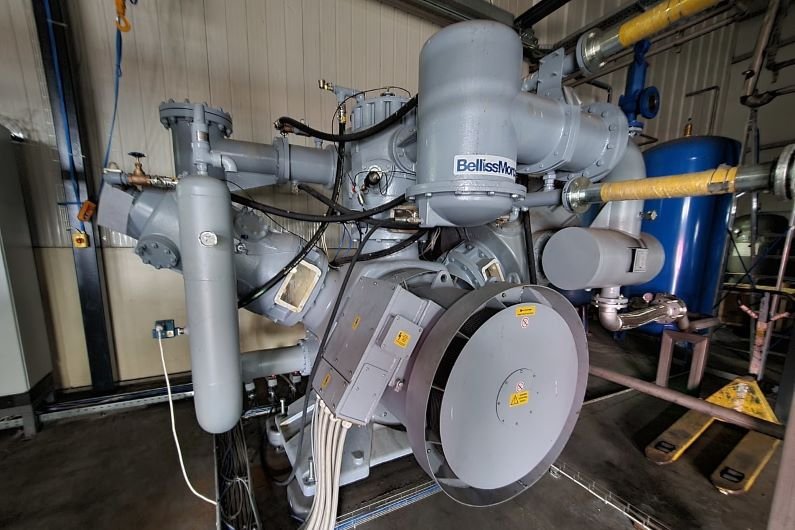Understanding Full Truckload (FTL) and Less-Than-Truckload (LTL) Freight Services
When it comes to freight transportation, two primary services cater to different shipping needs: Full Truckload (FTL) and Less-Than-Truckload (LTL).
FTL carriers transport full containers or truckloads of goods dedicated to a single customer.
This option is ideal for large shipments that can fill an entire trailer, providing faster transit times and reduced handling risks due to fewer stops.
On the other hand, LTL carriers consolidate shipments from multiple customers into one truck.
This method is cost-effective for smaller shipments that do not require an entire trailer, allowing shippers to pay only for the space their freight occupies. LTL services are perfect for businesses looking to ship items like a single pallet of goods or shipments ranging from 150 to 10,000 pounds.
What is LTL Trucking and Who Can Benefit?
Less-Than-Truckload (LTL) trucking is a freight transportation option designed for shipments that are too large for parcel carriers but too small to justify the cost of a full truckload. For example, a pallet of tiles or metal alloys weighing around 300 pounds and fitting within a standard pallet size (48 x 40 inches) is ideal for LTL shipping.
Businesses of all sizes can benefit from LTL services, especially those with moderate shipping volumes seeking economical and flexible shipping solutions.
At Texas International Freight, we specialize in providing LTL trucking services across the United States and internationally through our Less-than-Container-Load (LCL) offerings. Our strong relationships with carriers and volume discount contracts enable us to secure competitive rates for our customers, often lower than standard public pricing.
Expert LTL Trucking Services to Mexico and Canada
Expanding your business across borders can present logistical challenges, especially when navigating international shipping regulations. Texas International Freight offers reliable LTL trucking services to Canada and Mexico, ensuring your goods reach their destination efficiently and securely.
Our expertise includes handling shipments such as high-value computer parts from Houston to Guadalajara and prefabricated metal building materials from Tulsa, Oklahoma, to Calgary, Canada.
With the complexities introduced by the United States-Mexico-Canada Agreement (USMCA), cross-border shipping requires meticulous attention to documentation and compliance.
Our team is well-versed in these regulations, allowing us to streamline the shipping process and minimize potential delays or complications.
How Does LTL Trucking Work and How Is It Priced?
LTL trucking operates on a hub-and-spoke model to maximize efficiency. Here’s how it works:
- Pickup: Local trucks collect freight from various shippers within a region.
- Consolidation: The collected shipments are brought to a local terminal, where they are sorted and consolidated based on their destinations.
- Linehaul Transportation: Consolidated shipments are loaded onto long-haul trucks that transport the freight to terminals near the delivery destinations.
- Deconsolidation: At the destination terminal, shipments are sorted again for final delivery.
- Final Delivery: Local trucks deliver the shipments to their respective consignees.
LTL pricing is influenced by several factors:
- Weight and Dimensions: The weight and size of the shipment directly impact the cost. Heavier and larger shipments cost more but may have a lower rate per pound.
- Freight Class: The National Motor Freight Classification (NMFC) system categorizes freight into classes ranging from 50 to 500, based on density, stowability, handling, and liability. Lower classes (e.g., Class 50) are denser and cheaper to ship than higher classes (e.g., Class 500).
- Distance: The farther the shipment has to travel, the higher the cost.
- Accessorial Charges: Additional services such as liftgate delivery, inside pickup/delivery, residential service, or appointment scheduling may incur extra fees.
Understanding these factors can help you optimize your shipping strategy and reduce costs. Our team at Texas International Freight can assist you in navigating these complexities to find the most cost-effective solutions for your shipping needs.
Why Choose Texas International Freight for Your LTL Shipping Needs?
Choosing the right freight partner can make a significant difference in your supply chain efficiency. Here’s why Texas International Freight stands out:
- Experience and Expertise: With years of experience in the freight industry, we have the knowledge to handle a wide range of shipping requirements, including specialized and high-value cargo.
- Competitive Rates: Our volume discounts and strong relationships with carriers allow us to offer competitive pricing that may not be available directly to shippers.
- Customer Service: We prioritize clear communication and personalized service, ensuring that you are informed throughout the shipping process.
- Comprehensive Services: Beyond LTL trucking, we offer a full suite of logistics solutions, including FTL, LCL, and international shipping services, providing a one-stop-shop for all your freight needs.
Contact us today to learn how we can assist with your LTL shipping requirements and help your business reach new markets efficiently and cost-effectively.





